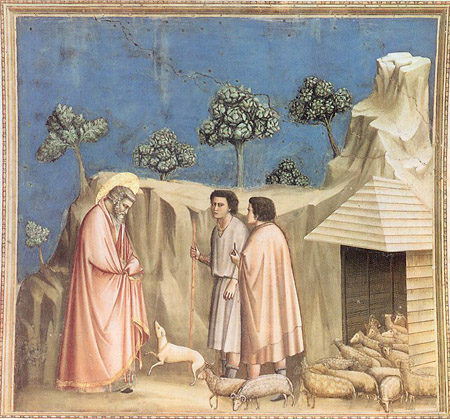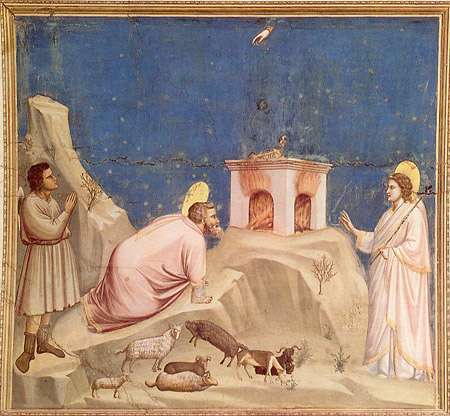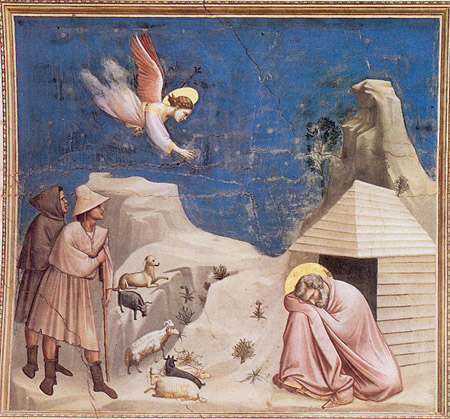



(Giotto’s frescoes in the Cappella degli Scrovegni, Padua. Proust:
When my father had decided, one year, that we should go for the Easter holidays to Florence and Venice, not finding room to introduce into the name of Florence the elements that ordinarily constitute a town, I was obligated to evolve a supernatural city from the impregnation by certain vernal scents of what I supposed to be, in its essentials, the genius of Giotto. At most – and because one cannot make a name extend much further in time than in space – like some of Giotto’s paintings themselves which show us at two separate moemnts the same person engaged in different actions, here lying in his bed, there getting ready to mount his horse, the name of Florence was divided into two compartments. . . . That (even though I was still in Paris) was what I saw, and not what was actually round about me. Even from the simplest, the most realistic point of view, the countries which long for occupy, at any given moment, a far larger place in our actual life than the country in which we happen to be.
from Swann’s Way (Moncrieff/Kilmartin/Enright trans.), cited in Eric Karpeles’s Paintings in Proust, p. 76.)